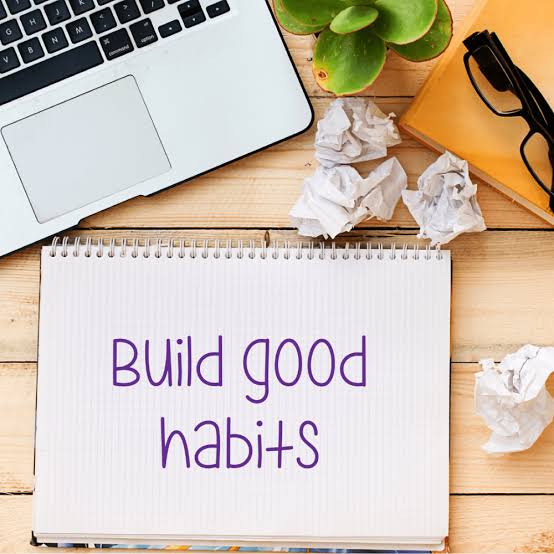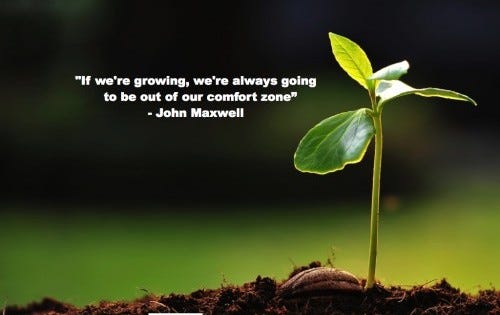Personal growth is a journey, not a sprint. It’s about becoming the best version of yourself, one small step at a time. Building healthy habits is the foundation of this transformation, offering a roadmap to improved mental, physical, and emotional well-being. Whether you’re aiming to boost productivity, enhance your relationships, or find inner peace, the right habits can make all the difference. This article dives deep into how to create sustainable habits, why they matter, and practical ways to integrate them into your life for lasting personal growth.
Why Healthy Habits Are the Key to Personal Growth
Habits shape who we are. From the moment you wake up to the time you go to bed, your daily routines determine your health, mindset, and success. By intentionally building healthy habits, you create a framework for consistent progress, helping you achieve goals that align with your values. Think of habits as tiny votes for the person you want to become—each one builds momentum toward a better you.
The Science Behind Habits
Habits are formed through a neurological loop: cue, routine, reward. According to Charles Duhigg, author of The Power of Habit, this loop explains why we repeat behaviors. For example, stress (cue) might lead to snacking (routine) for a quick dopamine hit (reward). Understanding this cycle helps you replace unhealthy habits with ones that serve your growth.
Habits vs. Willpower: Why Habits Win
Relying on willpower alone is like trying to hold your breath indefinitely—it’s unsustainable. Habits, on the other hand, become automatic, reducing the mental effort needed to stay consistent. By embedding healthy routines into your life, you free up energy for creativity, problem-solving, and pursuing bigger goals.
The Core Components of Healthy Habits
Healthy habits fall into three main categories: physical, mental, and emotional. Each plays a unique role in personal growth, and neglecting one can throw the others off balance. Let’s explore these pillars and how they contribute to a fulfilling life.
Physical Habits: Fueling Your Body for Growth
Your body is the vehicle for your ambitions. Physical habits like exercise, nutrition, and sleep directly impact your energy levels, focus, and resilience. For example, a 30-minute walk daily can boost endorphins, improve mood, and enhance cognitive function.
Best Physical Habits to Adopt
- Exercise Regularly: Aim for 150 minutes of moderate activity weekly, like brisk walking or yoga.
- Eat Nutrient-Dense Foods: Prioritize whole foods like vegetables, lean proteins, and healthy fats.
- Sleep 7–9 Hours: Quality sleep improves memory, mood, and decision-making.
Comparison: Healthy vs. Unhealthy Physical Habits
| Healthy Habit | Unhealthy Habit | Impact on Growth |
|---|---|---|
| Daily exercise | Sedentary lifestyle | Boosts energy vs. fatigue |
| Balanced diet | Processed food reliance | Enhances focus vs. brain fog |
| Consistent sleep | Irregular sleep patterns | Improves resilience vs. burnout |
Mental Habits: Sharpening Your Mind
Mental habits shape how you think, learn, and solve problems. Practices like journaling or mindfulness train your brain to stay focused and adaptable. For instance, I started journaling five years ago after a chaotic period in my life. Writing down my thoughts helped me process emotions and set clearer goals—it’s like a mental gym session.
Best Mental Habits to Adopt
- Practice Mindfulness: Spend 5–10 minutes daily meditating to reduce stress.
- Read Regularly: Dedicate 20 minutes to reading books that challenge your perspective.
- Set Goals: Break big goals into small, actionable steps to stay motivated.
Emotional Habits: Building Resilience and Connection
Emotional habits help you manage feelings and nurture relationships. Simple acts like expressing gratitude or setting boundaries can transform how you connect with yourself and others. A friend of mine swears by her nightly gratitude list—it’s helped her stay grounded even during tough times.
Best Emotional Habits to Adopt
- Practice Gratitude: Write down three things you’re thankful for daily.
- Set Boundaries: Learn to say “no” to protect your time and energy.
- Connect with Others: Schedule regular check-ins with friends or family.
How to Build Healthy Habits That Stick
Creating habits isn’t about perfection—it’s about consistency. The key is to start small, stay patient, and design systems that make success inevitable. Here’s a step-by-step guide to building habits that support your personal growth.
Step 1: Start Small and Specific
Big changes start with tiny actions. Instead of vowing to “get fit,” commit to a 10-minute walk three times a week. Specificity reduces overwhelm and builds confidence. When I decided to drink more water, I started by keeping a reusable bottle on my desk—simple but effective.
Step 2: Use Habit Stacking
Habit stacking pairs a new habit with an existing one. For example, if you already brush your teeth every morning, add a one-minute stretch afterward. This piggybacks on an established routine, making the new habit easier to adopt.
Step 3: Track Your Progress
Tracking keeps you accountable. Use a habit tracker app or a simple notebook to mark your daily wins. Seeing a streak of checkmarks is surprisingly motivating—like a high-five from your past self.
Pros and Cons of Habit Tracking
- Pros: Increases accountability, provides visual progress, boosts motivation.
- Cons: Can feel tedious, may create pressure if streaks break.
Step 4: Embrace the 1% Rule
James Clear, author of Atomic Habits, emphasizes improving by 1% daily. Small tweaks—like reading one page a day or meditating for two minutes—compound over time. In a year, these tiny changes can lead to massive growth.
Step 5: Anticipate Obstacles
Life gets messy. Plan for setbacks by identifying potential barriers and solutions. For example, if you’re too tired to exercise after work, try morning workouts or keep gym clothes in your car for quick sessions.
Tools and Resources for Building Healthy Habits
The right tools can make habit-building easier and more enjoyable. From apps to books, here’s a curated list of resources to support your journey.
Best Tools for Habit Tracking
- Habitica: A gamified app that turns habits into a role-playing game.
- Notion: A customizable tool for tracking habits, goals, and progress.
- Streaks: A visually appealing app for iOS users to maintain habit streaks.
Best Books for Habit Formation
| Book Title | Author | Key Takeaway |
|---|---|---|
| Atomic Habits | James Clear | Small changes lead to big results. |
| The Power of Habit | Charles Duhigg | Understand the habit loop to rewire behavior. |
| Tiny Habits | BJ Fogg | Start small to create lasting change. |
Where to Find Support
- Online Communities: Join forums like Reddit’s r/productivity or r/habits for tips and encouragement.
- Coaching: Hire a life coach or accountability partner for personalized guidance.
- Workshops: Look for local or virtual workshops on habit formation or personal growth.
Common Mistakes to Avoid When Building Habits
Even with the best intentions, it’s easy to stumble. Here are common pitfalls and how to sidestep them.
Mistake 1: Trying to Change Everything at Once
Overhauling your life overnight leads to burnout. Focus on one or two habits at a time. When I tried to start exercising, eating healthy, and meditating all at once, I lasted three days. Prioritizing one habit—exercise—made it stick.
Mistake 2: Ignoring Your Environment
Your surroundings influence your behavior. If you want to eat healthier, keep junk food out of the house. A clear environment supports clear intentions.
Mistake 3: Expecting Instant Results
Habits take time—typically 21 to 66 days to solidify, according to research. Be patient and celebrate small wins. Progress, not perfection, is the goal.
People Also Ask (PAA) Section
Here are answers to common questions about building healthy habits, sourced from Google’s “People Also Ask” feature.
How Do I Start Building Healthy Habits?
Start with one small, specific habit, like drinking a glass of water each morning. Pair it with an existing routine (habit stacking) and track your progress. Consistency beats intensity—focus on showing up daily.
What Are Examples of Healthy Habits?
Examples include exercising 30 minutes daily, eating five servings of vegetables, practicing mindfulness, journaling, and getting 7–9 hours of sleep. Choose habits that align with your personal growth goals.
How Long Does It Take to Form a Habit?
On average, it takes 21 to 66 days to form a habit, depending on the behavior and individual. Start small and stay consistent to make the habit automatic over time.
Why Is It So Hard to Stick to Healthy Habits?
Habits are hard to stick to when they’re too ambitious, lack clear triggers, or face environmental obstacles. Simplify your goals, design your environment for success, and anticipate setbacks.
FAQ Section
What’s the Most Important Healthy Habit for Personal Growth?
It depends on your goals, but many experts agree that sleep is foundational. Quality sleep (7–9 hours) enhances focus, emotional regulation, and physical health, setting the stage for other habits to thrive.
How Can I Stay Motivated to Build Habits?
Motivation fades, so rely on systems instead. Track your progress, reward small wins, and connect your habits to a bigger “why.” For example, exercising might tie to your goal of being active with your kids.
What If I Miss a Day of My Habit?
Missing one day won’t derail your progress. Just get back on track the next day. The key is consistency over perfection—focus on the long-term trend, not a single slip-up.
How Do I Choose Which Habits to Build?
Reflect on your values and goals. Want more energy? Prioritize exercise and nutrition. Seeking mental clarity? Try mindfulness or journaling. Align habits with what matters most to you.
Can Technology Help with Habit Building?
Yes, apps like Habitica, Notion, or Streaks can track progress and make habits fun. Wearables like Fitbit or smartwatches also provide data to monitor physical habits like steps or sleep.
The Long-Term Impact of Healthy Habits
Building healthy habits isn’t just about today—it’s about crafting a life you’re proud of. Each small choice compounds, shaping your health, mindset, and relationships. Imagine looking back five years from now, grateful for the habits you started today. That’s the power of consistency.
A Personal Story of Transformation
A few years ago, I was stuck in a rut—stressed, disorganized, and physically drained. I decided to start one habit: walking 10 minutes daily. It felt insignificant at first, but over months, those walks became runs, then gym sessions. That one habit sparked a chain reaction, improving my diet, sleep, and confidence. It wasn’t magic—it was persistence.
How Habits Shape Your Future
Habits are like compound interest for your life. A daily 10-minute meditation practice might seem minor, but over a year, it’s 3,650 minutes of calm and clarity. Small actions, done consistently, create exponential growth.
Conclusion: Your Next Step Toward Growth
Building healthy habits is the cornerstone of personal growth. Start small, stay consistent, and align your habits with your vision for the future. Whether it’s a morning stretch, a gratitude journal, or a commitment to better sleep, every step counts. Take one action today—maybe a five-minute walk or a quick journal entry—and watch how it snowballs into a better you. For more resources, check out James Clear’s website or explore habit-tracking apps like Habitica. Your future self will thank you.





